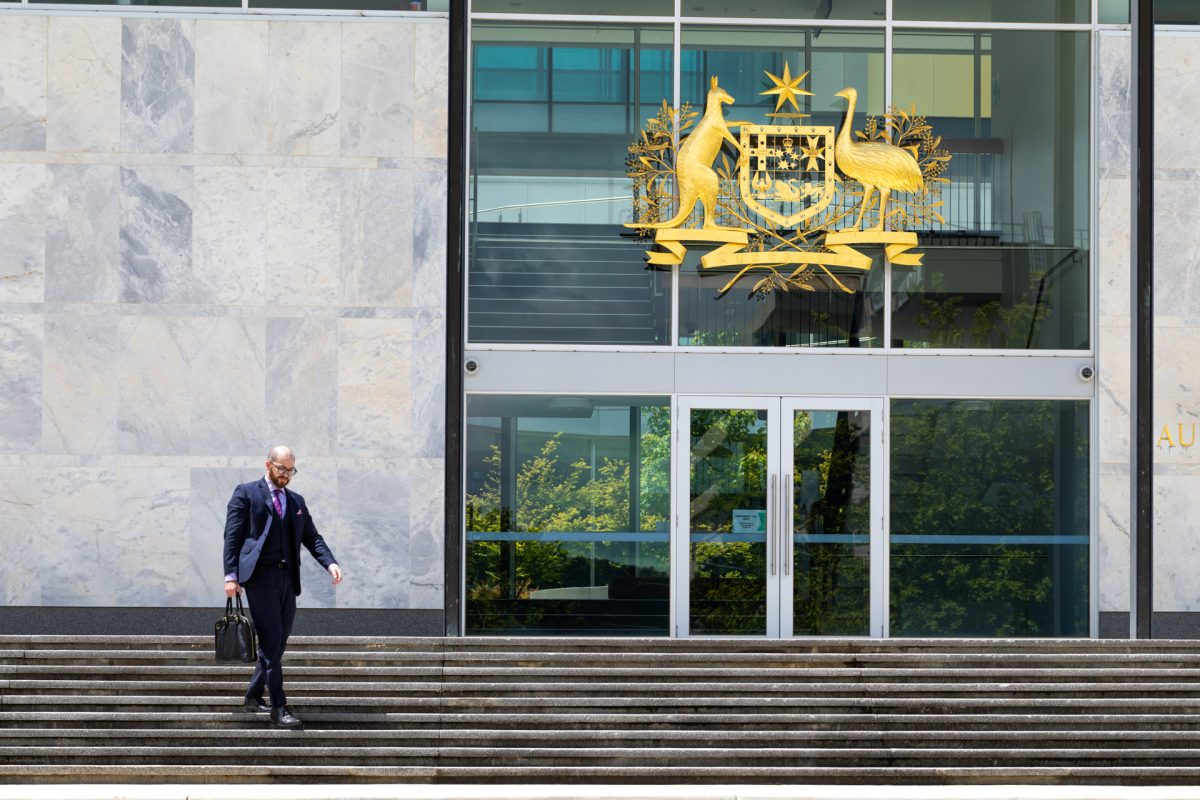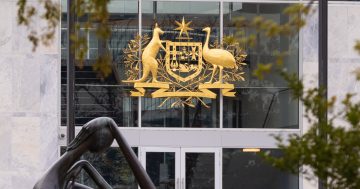
Andrew Byrnes is the founder and director of Andrew Byrnes Law Group. Photo: Michelle Kroll.
Bail laws in the ACT tend to be controversial in the public eye, but what do they really mean for the people being charged? And what does the law have to consider when it reviews bail applications, and how are public and personal safety protected when bail is granted?
Criminal defence specialist Andrew Byrnes, founder and director of Andrew Byrnes Law Group, says it is important to understand the processes behind bail laws before jumping to conclusions about how well they work.
“When a person is charged with an offence, it is their right to apply for bail,” Mr Byrnes says.
“A police officer must first decide whether a person can be given bail – either without conditions or with police imposed conditions.
“If the person being charged is refused bail by the police and comes before a magistrate to apply for it, the first thing the court will look at is whether there is a presumption for or against bail, or no presumption at all.”
Some charges have a presumption for or against bail attached to them, based on the highest possible level of prosecution.
For minor offences with fairly modest repercussions, like breaching the peace, the presumption is generally for bail. More serious charges like murder, manslaughter, or major drug offences have a presumption against bail attached to them.
“Bail can also be presumed against if the individual has allegedly committed a serious offence while another serious charge is outstanding,” Mr Byrnes says.
“If there is no presumption for or against bail, the result is determined by the 1992 Bail Act.
“In essence, the magistrate considers how serious the charges are, the person’s background and character, how strong the prosecution is, and whether that person will be a threat to others if they are free to move about the community.”
He says the idea that dangerous offenders are being granted bail unjustifiably in the ACT is often fuelled by a lack of public understanding.
And, when the magistrate looks at a bail application, they must treat the prosecution’s case at its highest, effectively assuming the worst about the applicant for bail.
“There are regular discussions in the public, particularly on social media, that demonstrate a real sense of frustration in the ACT when it comes to bail being granted,” Mr Byrnes explains.
“When someone is charged with an offence and granted bail, there will always be a concern in the community that they are a danger to others simply because of what they’ve been charged with.
“It’s important to remember that every person brought before the court is presumed innocent until proven guilty beyond a reasonable doubt.”

The Alexander Maconochie Centre (AMC) doesn’t currently have the resources to keep up with a hike in bail refusals. Photo: AMC.
The justice system has limited resources, and Mr Byrnes says if more applicants are refused bail on the basis of stricter presumptions, correctional facilities like the Alexander Maconochie Centre (AMC) may need more space and a bigger budget.
“If there is a desire in the community to lock everyone up and throw away the key, the community may need to bear that financial cost,” he adds.
“Aside from the financial strain, it is always concerning that someone might become institutionalised by spending time in custody that may not need to be spent there at all.
“While there are certainly risks that people on bail will breach their bail conditions, the court’s job is to apply the law fairly and strike the right balance between protecting the community and upholding the human rights of the applicant for bail.”
If you have a legal problem or have been charged with a criminal offence, contact Andrew Byrnes Law Group for a free initial consultation with a lawyer.




















